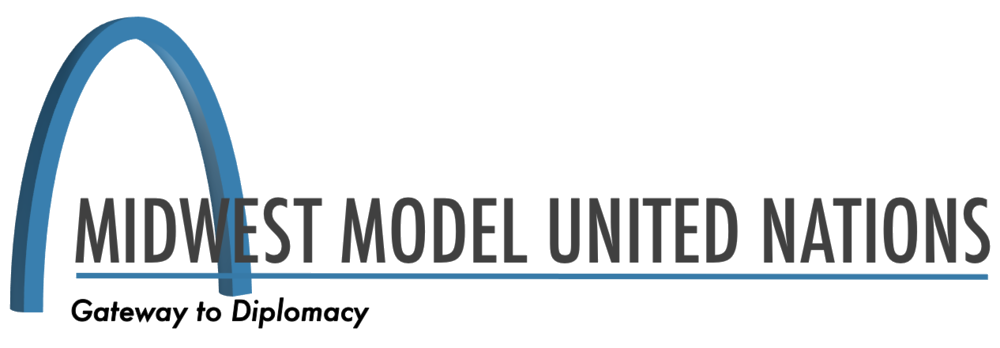About Model UN
Model UN conferences come in many forms, but generally focus on putting students in role of diplomats, or “delegates,” representing a country in a United Nations body or program. Representing a different country requires research and exposure to alternative points of view, allowing students to better understand the complexities of international relations and policy negotiation. Model UN allows students to hone numerous skills that advance their ability to succeed academically and professionally, including:
- Research & writing
- Public speaking
- Negotiation and diplomacy
Additional introductory information is provided in our introduction to model UN video and the United Nations has a significant number of resources available in its Model UN Guide. MMUN staff is also always available to assist any institution in getting started with model UN – feel free to contact us.
Midwest Model UN
Our conference has three goals:
- To promote interest and understanding of the nations of the world.
- To help students gain a broader perspective of global issues and the role of the United Nations.
- To encourage investigation into the field of international studies and the process of diplomatic negotiations.
MMUN is a unique conference that is designed to put the power in the hands of delegates. We have an extended set of rules that are designed to be flexible and responsive, a unique structure designed to give delegates variation in experience, and we regularly present delegates with crises or unexpected events that challenge them in new and interesting ways. For complete details on our rules of procedure and what to expect at the conference, please review the Delegate Handbooks.
Conference Structure
MMUN is structured to provide a forum for students to find solutions to the most pressing international issues, broaden their perspectives, and help to develop them as global citizens. The work of the conference is split up into various committees, each of which has its own thematic area based on the agenda of those committees at the real United Nations. Within those committees, student delegates operate in:
- Formal session, consisting of speeches, questions & answers, and the use of rules of procedure.
- Informal session, where delegates form groups to negotiate solutions to the topic at hand and draft working papers.
As groups draft working papers, they receive feedback and suggestions from the conference staff, an important component of the educational conference experience. Once papers are sufficiently honed, they are accepted as draft resolutions and may be voted on by the committee. In all except Security Council committees, adopted draft resolutions are passed on to a plenary session where all committees come together to consider and formally adopt draft resolutions as outcomes of the conference.

Position Papers
Position papers are drafted in advance of the conference and are meant to communicate priorities to other delegations in each committee. For templates, guidelines, and aware criteria, please visit the position paper page.
Awards
While the MMUN staff and Board of Directors believe that participation in model UN is its own reward, the conference seeks to highlight the work of delegates and entire delegations by offering awards, including:
- Position paper awards, which are used to recognize those delegations that submit high quality position papers that are among the best in their committee.
- Committee awards, which are used to recognize the work of individual delegates or delegate pairs across all sessions of a committee.
- Delegation awards, which are used to recognize the work undertaken by entire delegations throughout all sessions.
- Crisis simulation awards, which are used to recognize delegations in each Security Council that respond effectively to emerging situations presented to the committee.
- Delegates’ choice awards, which are awarded based on delegates’ votes in each committee.
For awards criteria and additional information, please see the Delegate Handbook, available in the delegate resources page.
